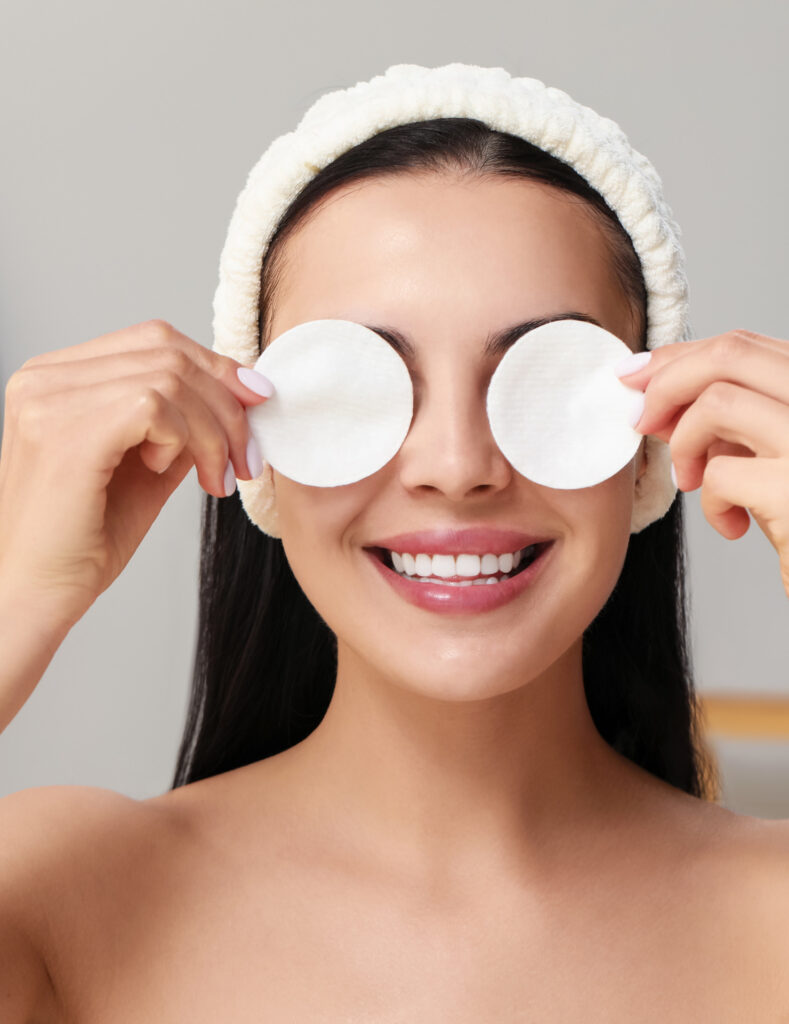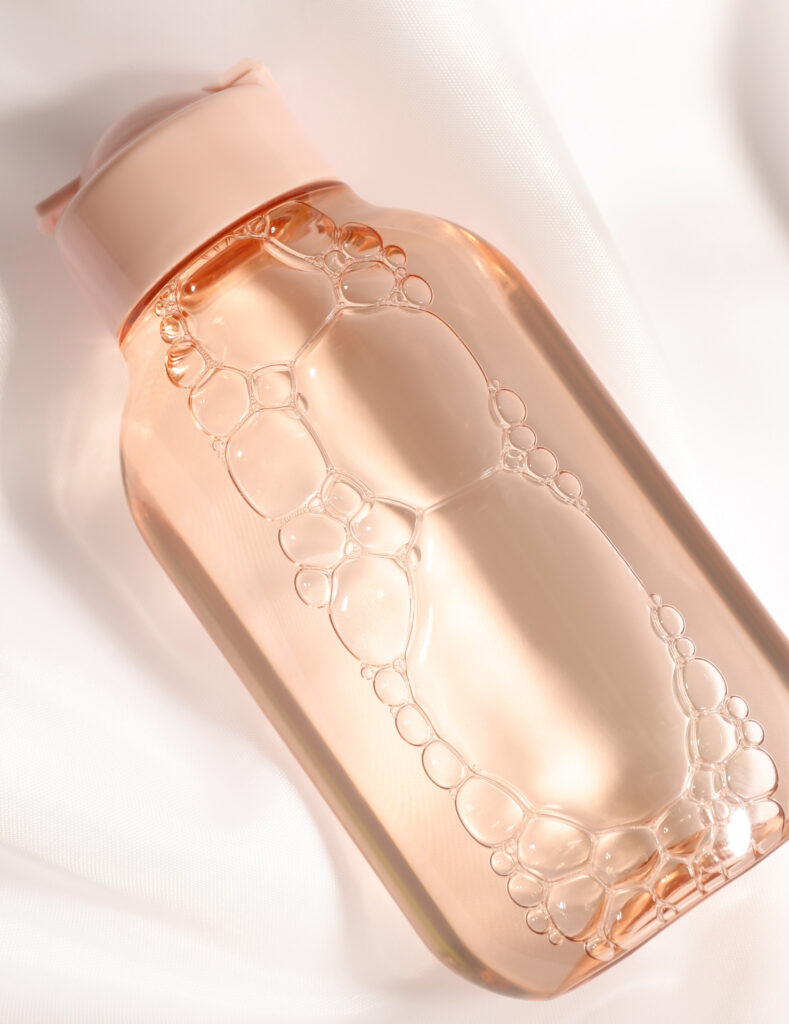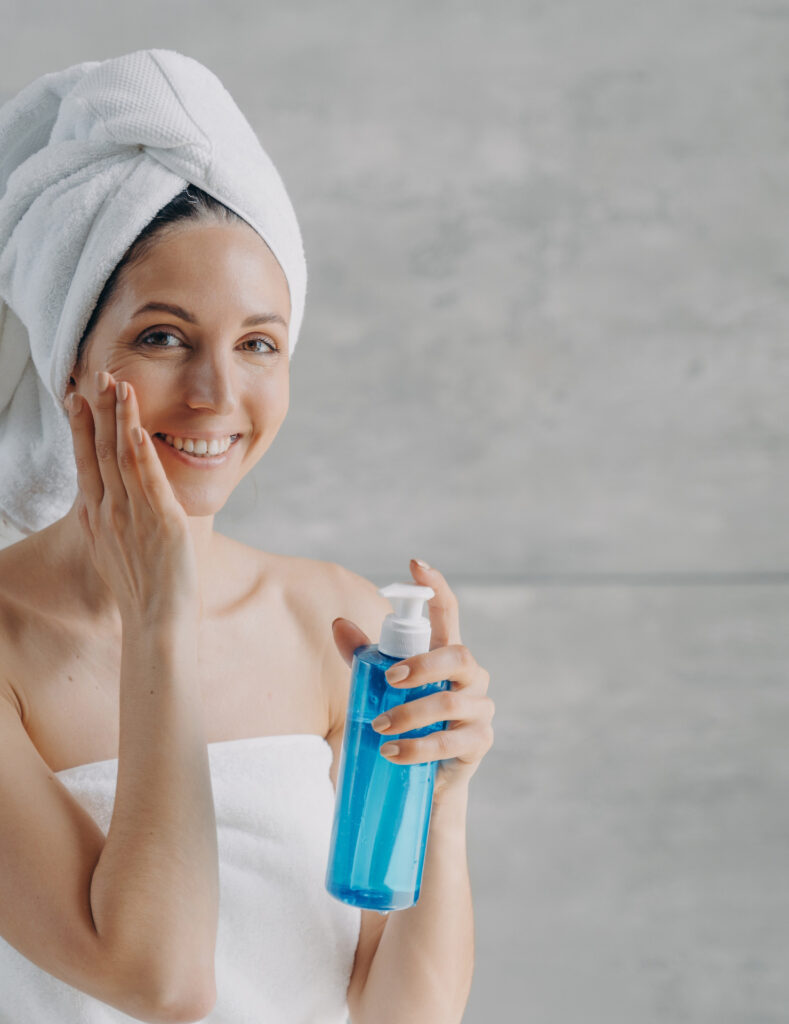Micellar water has gained popularity as a gentle and convenient cleansing option for many skincare enthusiasts. While it is widely regarded for its ability to effectively remove dirt, oil, and light makeup without the need for rinsing, concerns have been raised about whether micellar water can cause acne.
Understanding the potential relationship between micellar water and acne requires examining its ingredients, skin type considerations, and individual sensitivities. By exploring these factors, we can gain insights into whether micellar water is a friend or foe when it comes to acne-prone skin.

Can micellar water cause acne?
Micellar water is a gentle cleansing product that has gained popularity in skincare routines. It is designed to remove dirt, oil, and makeup from the skin without the need for rinsing. While micellar water is generally considered a mild and non-irritating option, it can cause acne in some individuals, although it is relatively rare.
Micellar water itself is not likely to directly cause acne. It typically consists of micelles, which are tiny oil molecules suspended in water, and other ingredients like gentle surfactants and moisturizers. These ingredients are formulated to be gentle and non-comedogenic, meaning they shouldn’t clog pores or trigger breakouts.
However, there are a few factors that could potentially contribute to acne when using micellar water:
- Residue: If micellar water is not properly rinsed off the skin or if you use too much of it, a residue may be left behind. This residue can potentially mix with other impurities on the skin, such as sweat or sebum, and contribute to clogged pores and acne breakouts.
- Sensitivity: Everyone’s skin is different, and some individuals may be more sensitive to certain ingredients in micellar water. If you have particularly sensitive skin, it’s possible that an ingredient in the product could irritate your skin and lead to breakouts.
- Inadequate cleansing: While micellar water can effectively remove light makeup and surface impurities, it may not be sufficient for deep cleansing. If you rely solely on micellar water and do not follow up with a proper cleanser, it’s possible that residual impurities can build up and contribute to acne over time.
To minimize the risk of acne or skin irritation when using micellar water, consider the following tips:
- Use an appropriate amount: Use only the amount of micellar water necessary to cleanse your skin. Applying excessive amounts can leave behind residue and potentially contribute to acne.
- Rinse or follow up with a cleanser: If you have concerns about residue, you can rinse your face with water after using micellar water. Alternatively, you can follow up with a gentle cleanser to ensure your skin is thoroughly cleansed.
- Choose the right product: Opt for micellar waters that are labeled as non-comedogenic or formulated for acne-prone skin. These products are less likely to clog pores and trigger breakouts.
- Patch test: If you have sensitive skin or are trying a new micellar water for the first time, consider performing a patch test on a small area of your skin to check for any adverse reactions before applying it to your entire face.
Remember that individual responses to skincare products can vary, so if you notice that micellar water consistently causes acne breakouts or skin irritation, it may be best to discontinue use and consult with a dermatologist for personalized recommendations.
What are the bad effects of micellar water?
Micellar water is generally considered a gentle and effective cleansing option for most people. However, there are a few potential negative effects that some individuals may experience:
- Dryness: Micellar water can dry the skin, particularly if it contains high concentrations of alcohol or other drying ingredients. This can lead to a feeling of tightness or flakiness, especially if the skin’s natural moisture barrier is compromised. If you have dry or sensitive skin, it’s important to choose micellar water that is formulated with moisturizing ingredients or follow up with a hydrating moisturizer.
- Irritation: While micellar water is designed to be gentle, some individuals may still experience skin irritation or sensitivity. This can be due to individual allergies or sensitivities to specific ingredients in the product. If you notice redness, itching, or a stinging sensation after using micellar water, discontinue use and consult a dermatologist.
- Residue: If micellar water is not properly rinsed off or if too much of it is left on the skin, it can potentially leave behind a residue. This residue may mix with other impurities on the skin, such as sweat or sebum, and contribute to clogged pores and breakouts. To minimize this risk, make sure to rinse your face with water or follow up with a gentle cleanser after using micellar water.
- Insufficient cleansing: While micellar water is effective at removing light makeup and surface impurities, it may not be sufficient for deep cleansing. If you rely solely on micellar water and do not follow up with a proper cleanser, residual impurities can accumulate over time, leading to dull-looking skin or clogged pores.
- Ineffectiveness for waterproof or heavy makeup: Micellar water may struggle to remove waterproof or heavy makeup effectively. These types of products require more thorough cleansing methods, such as an oil-based makeup remover or a dedicated makeup remover cleanser. If you frequently wear waterproof or long-lasting makeup, consider using micellar water as a first step in your cleansing routine and follow up with a suitable makeup remover.
It’s important to note that the majority of individuals can use micellar water without experiencing any negative effects.

Is it bad to use micellar water every day?
Using micellar water daily is generally considered safe for most people, as long as you are using it correctly and it suits your skin type. Micellar water is designed to be a gentle cleanser that can effectively remove dirt, oil, and light makeup from the skin without the need for rinsing.
However, there are a few factors to consider:
- Skin type: If you have dry or sensitive skin, using micellar water daily may potentially contribute to further dryness or irritation. In such cases, it’s important to choose a micellar water that is formulated with moisturizing ingredients and follow up with a hydrating moisturizer.
- Heavy makeup or waterproof products: Micellar water may not be as effective at removing heavy makeup or waterproof products. If you frequently wear these types of makeup, it’s advisable to use micellar water as a first step in your cleansing routine and follow up with a suitable makeup remover or cleanser.
- Inadequate cleansing: While micellar water can effectively remove surface impurities, it may not be sufficient for deep cleansing. It’s generally recommended to follow up with a proper cleanser at least once a day, especially in the evening, to ensure a thorough cleansing of the skin.
- Personal preference: Some individuals may prefer the feeling of using water-based cleansers or foaming cleansers instead of micellar water. It ultimately depends on your personal preference and how your skin responds to different cleansers.
If you choose to use micellar water daily, here are a few tips to consider:
- Use an appropriate amount: Use only the amount of micellar water necessary to cleanse your skin. Using excessive amounts can potentially leave behind residue.
- Rinse or follow up with a cleanser: If you have concerns about residue or if you wear heavy makeup, consider rinsing your face with water after using micellar water or follow up with a gentle cleanser to ensure thorough cleansing.
- Observe your skin’s response: Pay attention to how your skin reacts to daily use of micellar water. If you notice any signs of dryness, irritation, or breakouts, it may be a sign that you need to adjust your skincare routine or consider using micellar water less frequently.
Is it better to rinse off micellar water?
While rinsing off micellar water is not necessary, it can be beneficial for some individuals, especially if they have concerns about residue or if they want to ensure thorough cleansing. Rinsing off micellar water after use helps to remove any remaining product, impurities, or residue from the skin. It can provide a sense of freshness and cleanliness.
Rinsing with water can also be particularly helpful for individuals with sensitive or dry skin. Some micellar waters may contain ingredients that, when left on the skin, can potentially cause dryness or irritation. By rinsing with water, you can minimize the chances of any lingering product causing adverse effects.
However, it’s important to note that not all micellar waters require rinsing. Micellar water is designed to be a no-rinse cleanser, and its formulation typically includes ingredients that do not need to be rinsed off. If you are using a micellar water specifically labeled as a no-rinse formula, you can follow the instructions provided and skip the rinsing step.
Ultimately, whether or not to rinse off micellar water is a personal preference. If you prefer the sensation of rinsing with water or if you have specific concerns about residue, it is perfectly fine to rinse your face after using micellar water. On the other hand, if you find that the micellar water you are using leaves your skin feeling clean and comfortable without rinsing, you can choose to skip the rinsing step.
Remember that after rinsing or using micellar water, it’s generally recommended to follow up with a moisturizer or any additional skincare products in your routine to provide hydration and protection for your skin.
Why is my face sticky after micellar water?
If your face feels sticky after using micellar water, there could be a few reasons for this sensation:
- Residue: Micellar water is designed to remove dirt, oil, and makeup from the skin. However, if you use too much micellar water or do not thoroughly remove it from your skin, a residue may be left behind. This residue can contribute to a sticky feeling on the skin. Make sure to use an appropriate amount of micellar water and consider rinsing your face with water or using a gentle cleanser afterward to ensure that any residue is completely removed.
- Product formulation: Different micellar waters may have varying ingredient formulations. Some micellar waters contain ingredients that can leave a slight film or residue on the skin, resulting in a sticky sensation. If you consistently experience stickiness with a particular micellar water product, you may want to try a different brand or formulation to see if it resolves the issue.
- Skin type: The sticky feeling may also be related to your skin type. Some individuals naturally have more oily or sticky skin due to factors like excess sebum production. In such cases, micellar water may not fully address the stickiness, and you may benefit from incorporating additional cleansing or mattifying products into your skincare routine.
If you find that your face consistently feels sticky after using micellar water, consider the following steps:
- Adjust the amount: Use a smaller amount of micellar water and ensure that you are not applying it excessively. Applying too much product can contribute to residue and stickiness.
- Thoroughly remove the product: After applying micellar water, gently wipe away the product with a cotton pad or soft cloth. If needed, rinse your face with water or use a gentle cleanser to ensure all residue is removed.
- Experiment with different products: If you continue to experience stickiness, try using a different brand or formulation of micellar water. Look for options labeled as lightweight, non-sticky, or residue-free.
- Follow up with a moisturizer: After using micellar water, apply a lightweight moisturizer suitable for your skin type. This can help provide hydration and balance to the skin, reducing any residual stickiness.
If the stickiness persists or is accompanied by other concerning symptoms, it’s advisable to consult with a dermatologist for a thorough evaluation and personalized recommendations.

Should you shake micellar water?
It is generally recommended to shake micellar water before use. Micellar water consists of micelles, which are tiny oil molecules suspended in water. These micelles help to attract and lift away dirt, oil, and impurities from the skin. Shaking the micellar water before use ensures that the micelles are evenly distributed throughout the product.
Shaking the micellar water helps to mix any separated or settled components and ensures that you get the product’s full benefits when you apply it to your skin. It helps to ensure that the micellar water is properly mixed and ready to effectively cleanse and remove impurities.
In general, shaking the micellar water before each use is a good practice to ensure that the micelles are evenly distributed and you get the intended benefits when cleansing your skin.
List of the best micellar water brands:
There are several reputable micellar water products available in the market. While individual preferences may vary, here is a list of popular and highly regarded micellar water brands:
- Bioderma Sensibio H2O Micellar Water
- Garnier SkinActive Micellar Cleansing Water
- La Roche-Posay Micellar Water Ultra
- Simple Kind to Skin Micellar Cleansing Water
- Caudalie Micellar Cleansing Water
- Avene Micellar Lotion Cleanser and Makeup Remover
- Neutrogena Hydro Boost Micellar Water
- NIVEA MicellAIR Micellar Water
- L’Oréal Paris Micellar Cleansing Water
- Vichy Pureté Thermale Micellar Cleansing Water
The best micellar waters are known for their effectiveness in gently removing impurities, including dirt, oil, and light makeup, without drying out or irritating the skin. Facial cleansers should never cause a negative reaction. For best results, be sure to patch test a few days using a soaked cotton pad. See how your skin barrier and skin surface reacts.
Does Micellar water work on waterproof makeup and waterproof mascara?
Micellar water is generally effective at removing light to moderate makeup, including regular foundation, mascara, and eyeshadow. However, when it comes to waterproof or long-lasting makeup, micellar water may struggle to completely remove it.
Waterproof makeup is designed to be resistant to water, which means it can be more challenging to remove compared to regular makeup. The micelles in micellar water work by attracting and lifting away oil-based impurities, but waterproof makeup is typically formulated with ingredients that are more resistant to these micelles.
While micellar water can help break down some components of waterproof makeup, it may not be enough to fully remove it. You may find that you need to use additional cleansing methods or dedicated waterproof makeup removers to effectively remove waterproof products from your skin.
If you regularly wear waterproof or long-lasting makeup, here are a few options to consider:
- Oil-based makeup removers: Oil-based cleansers or makeup removers are specifically designed to dissolve and remove waterproof makeup. They can be effective at breaking down and lifting away stubborn waterproof products. You can use an oil-based makeup remover as a first step to dissolve the makeup and then follow up with micellar water or a gentle cleanser.
- Dual-phase micellar water: Some micellar waters are formulated as dual-phase solutions, with one phase containing oil and the other phase containing water. These dual-phase micellar waters are often more effective at removing waterproof makeup than regular micellar waters. Shake the product well to mix the phases, apply it to a cotton pad, and gently wipe away the makeup.
- Makeup remover wipes: Makeup remover wipes, especially those designed for waterproof makeup, can be convenient for on-the-go use or for quickly removing makeup before cleansing your face. Look for wipes specifically labeled as suitable for waterproof makeup.
It’s important to note that after using any cleansing method, following up with a gentle cleanser and moisturizer is generally recommended to ensure that your skin is thoroughly cleansed and hydrated.
Which is better for your skin? Witch Hazel or Micellar Water?
The choice between witch hazel and micellar water depends on your specific skincare needs and preferences. Both witch hazel and micellar water have different properties and uses:
- Witch Hazel: Witch hazel is a natural astringent derived from the witch hazel plant. It has been used for many years in skincare due to its soothing and clarifying properties. Some potential benefits of witch hazel include:
- Astringent properties: Witch hazel can help tighten the skin and reduce the appearance of pores.
- Anti-inflammatory properties: It may help calm irritation and redness.
- Antioxidant properties: Witch hazel contains antioxidants that can help protect the skin from environmental damage.
- However, it’s important to note that witch hazel can be drying for some individuals, especially those with dry or sensitive skin. It is recommended to use alcohol-free witch hazel to minimize potential dryness and irritation.
- Micellar Cleansing Waters: Micellar water is a gentle cleansing product of micelles, tiny oil molecules suspended in water. It is designed to remove dirt, oil, and makeup from the skin without the need for rinsing. Some potential benefits of micellar water include:
- Mild and non-irritating: Micellar water is generally well-tolerated by most skin types, including sensitive skin.
- Convenient and easy to use: It provides a quick and efficient way to cleanse the skin, especially with limited water access.
- Hydrating properties: Many micellar waters are formulated with moisturizing ingredients that can help keep the skin hydrated.
- However, micellar water may be less effective at removing heavy or waterproof makeup than specialized makeup removers or cleansers.
In summary, witch hazel may be a suitable option if you have oily or acne-prone skin and are looking for a toning and clarifying effect. On the other hand, if you prefer a gentle and convenient cleansing option acting as a light make-up remover that also removes impurities without stripping the skin, micellar water may be a better choice.
You should absolutely add this popular product to the skin care routine, but if you have acne-prone skin types, it is important to keep an eye out for further irritation. Clear skin and healthy skin both have barriers that aren’t broken. So yes, micellar water can become part of your skincare routine, but to ensure less breakouts, don’t overdo it. It’s worth trying and is an absolutely great choice for light makeup removal. Take note if you start having an allergic reaction or if your skin responds poorly to harsh rubbing.
At the end of the day, it’s all about what works for you! Even a gentle alternative might not be a good idea if your sensitive skin can’t handle it.
